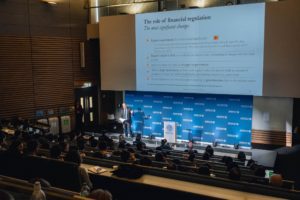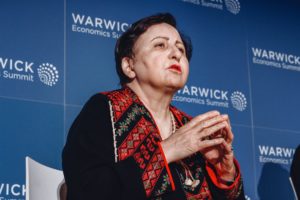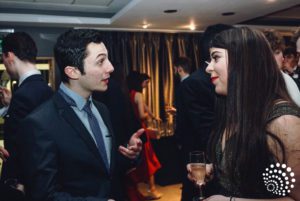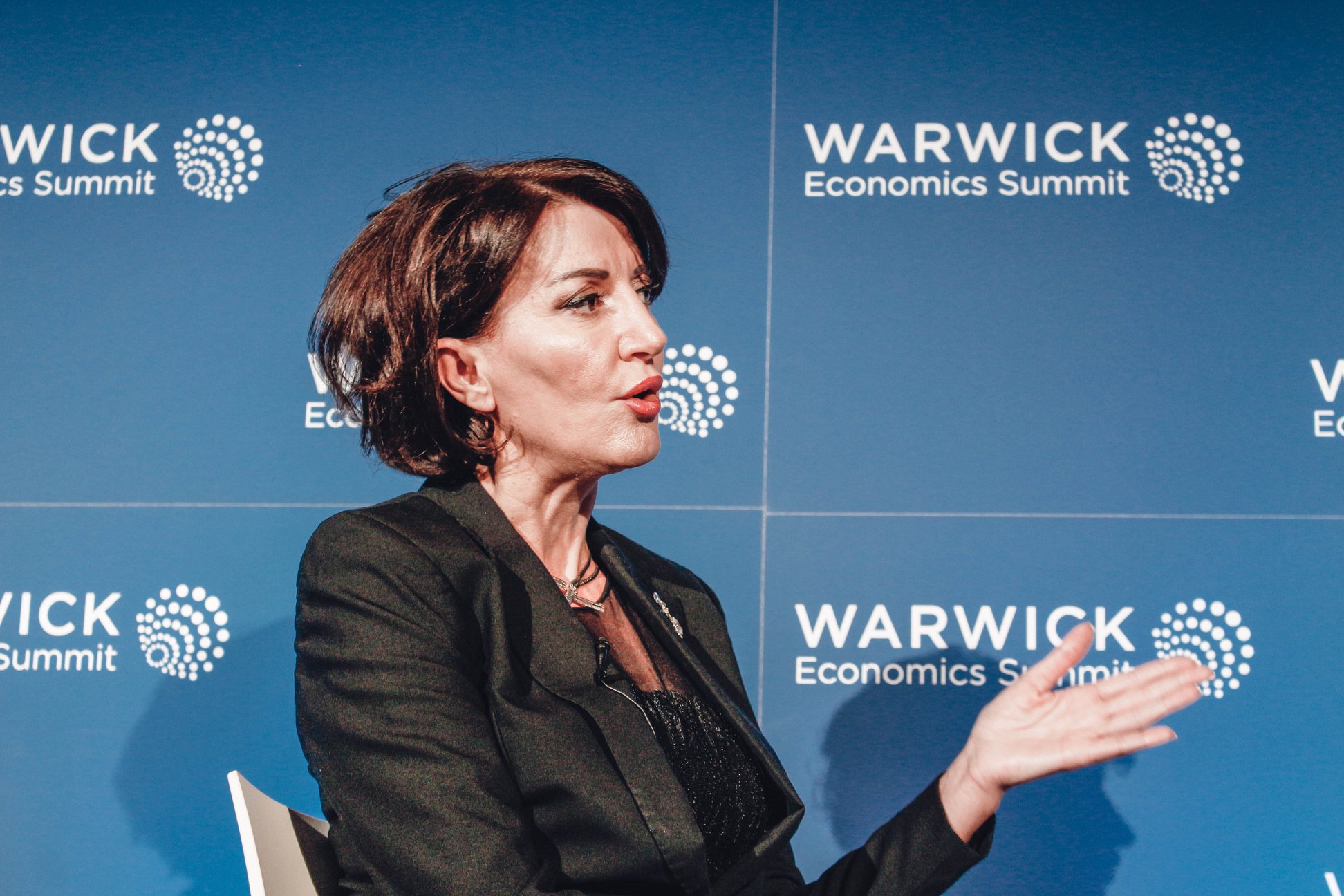Warwick, UK – Saturday, February 1st, the Stork continued its coverage of the 2020 Warwick Economic Summit.
Murmuring voices were quickly hushed as students re-entered “The Oculus” amphitheater. Energized from their meals and seminars, they were all eager to resume the Summit. Silence filled the air as the next speaker took to the podium.
Mr. Carlo Cottarelli, former Director of the International Monetary Fund, started his speech with a review of financial history, centering around the Great Recession of the late 2007/early 2008. Mr. Cottarelli spoke of how interest rates and the public deficit operated at the time – and how, in response to the situation, the IMF did something it had never done before; it recommended that states increase public spending, despite high deficits.

Mr. Cottarelli then reviewed other responses to the financial crisis, and their current status. With rises in certain areas of banking regulation, the equity requirements and exposure rates, combined with low interests rates and changing technologies, banks now must live in a world of low profits. The former IMF Director then explained to one questioning student how the IMF operates as a fund for those countries without creditworthiness.
Then came Dr. Shirin Ebadi, a judge, Nobel Peace Prize laurelite, and Iranian political and human rights activist. Speaking in her native Farsi with an interpreter, she would be talking on identifying the root causes of the – current – Iranian crisis. The complex political and socio-economic situation contains many dimensions, and from the Iranian Hostage Crisis to recent protests to the downing of the Ukrainian Airliner, the situation has only become increasingly byzantine.

The assessment was soon interrupted by a ringing phone. Dr. Ebadi’s, to be exact. Much to the enjoyment of the crowd and with an endearingly sweet reaction by Dr. Ebadi – “please, just let me … sorry, bad boy” – the phone was switched off, and the discussion continued.
Part of the level of complication in Iran is what made Dr. Ebadi’s message so simply elegant and compelling: “Iran is like a volcano, sadly it could erupt at any moment… [Therefore], the best thing Western countries can do to Iran, is to do nothing with Iran.” In Dr. Ebadi’s judgement, the regime can and will fall, provided other powers (including Russia and China) do not interfere with the natural rise of Iranian self-determination.

In response to a related question posed by this reporter regarding whether recent US actions – such as the killing of General Soleimani – solidified or threaten Ayatollah Khamenei’s power, Dr. Ebadi had this to say: “He [Soleimani] was not irreplaceable. … what the US did was wrong … the same way it is wrong for the Iranian regime to interfere in the affairs of the Iraqi government.” The Nobel Prize laureate ended by saying she was saddened by the fact that these two countries continued to resort to proxy warfare.
Following the Iranian activist’s speech was a brief break before the final panel of the day. Speaking on “Government Intervention in the Welfare Provision,” the panel included Sir Julian Le Grand (Professor of Social Policy at the London School of Economics), Bina Agarwal (Professor of Development Economics and Environment University of Manchester), Ian Begg (Professorial Research Fellow at the European Institute, London School of Economics), and Matthew Lesh (Head of Research at the Adam Smith Institute), and would be moderated by Brando Benifei – the Italian MEP who had spoke in the previous panel on the Future of Britain’s Relationship with the EU.

Mr. Benifei began with a rather lengthy introduction on the matter of welfare before introducing the panelist, reviewing Italian and additional European examples of the issue(s). Professor Agarwal spoke first, stating the “sustainable development goals are an approach to welfare,” but noted the various pitfalls and disparities in action and understanding of those goals. Sir Le Grand quickly followed up the remarks on inequality and how it shot up suddenly and seemingly without cause in 1979.
It was the words of Mr. Begg, however, that caught this reporters attention. “Do we all know what the welfare state is? Can any of you tell me if you’ve put that into definition? Well, let me try.” Mr. Begg explained the welfare state as doing three – it provides protection as a “safety net” for those in need, “it institutionalizes savings,” and lastly, it “invests in people” (or more accurately, it engages in social investments). Additionally, the European concept of the welfare state is extremely difficult to fully conceive or categorize, and its is far easier to think of what it is not – being not Chinese, American, Indian, etc. – than what it is.
The topic would quickly became more and more technical in nature. Differing opinions on tax systems and how best to support the welfare state were called into question. Mr. Lesh emphasized how taxes are usually structured around the flow of cash, and as wealth is often held in investments and other assets, it is not only difficult to acquire, but wipes out wealth quickly. Prof. Agarwal seemed to echo some aspects of this assessment – in developing countries in particular, wealth is predominantly based on land ownership – a difficult thing to compensate for or liquidate when paying government dues. The conversation continued, taking on more and more additional dimensions until it had concluded at six.

After the long day of speeches and panels, the attendees were invited to attend the formal festivities for the night. While much to the disappointment of this reporter, the Moonshine Ball hosted no such spirits, the Ball did provide attendees with chances to personally meet some of the guest speakers present. As students danced the night away, the 2nd day of the WES came to a close.






